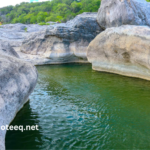In today’s digital age, the allure of capturing the perfect beach moment has led many individuals to consider taking and sharing nude or partially nude photos while enjoying the sun and sand. However, this practice comes with significant risks and consequences that are often overlooked. As you navigate the complexities of beach photography, it’s crucial to understand the importance of privacy, consent, and respect in order to ensure a safe and enjoyable experience for all.
The Risks and Consequences of Sharing Naked on the Beach Photos
Sharing nude or partially nude photos from the beach can have far-reaching and long-lasting consequences. These images can be easily screenshot, downloaded, and shared without your knowledge or consent, leading to a loss of control over your personal information and the potential for exploitation or harassment. Additionally, the legal implications of such actions can be severe, with the possibility of facing charges related to invasion of privacy, revenge porn, or even child pornography if minors are involved.
The emotional toll of having intimate photos shared without your permission can be devastating, leading to feelings of shame, embarrassment, and a violation of trust. The impact on your personal and professional life can be significant, as these images can resurface at any time and damage your reputation or relationships.
Tips for Protecting Your Privacy and Staying Safe While at the Beach
To mitigate the risks associated with naked on the beach photos, it’s crucial to take proactive steps to protect your privacy and safety. Here are some tips to consider:
- Avoid Taking Nude or Partially Nude Photos: Refrain from taking any photos that reveal intimate areas of your body, even if you plan to keep them private. The potential for these images to be shared without your consent is simply too high.
- Be Mindful of Your Surroundings: Be aware of who is around you and whether they may be able to capture photos or videos without your knowledge. Choose secluded areas of the beach or consider wearing cover-ups to minimize the risk of unwanted exposure.
- Limit the Sharing of Personal Photos: If you do decide to take beach photos, avoid sharing them on social media or with anyone other than trusted friends and family. Be cautious of the privacy settings on your devices and accounts to prevent unauthorized access.
- Educate Yourself on Privacy and Consent Laws: Familiarize yourself with the laws in your area regarding privacy, consent, and the sharing of intimate images. Understand your rights and the potential legal consequences for violating them.
Alternatives to Taking and Sharing Naked on the Beach Photos
Instead of risking the potential consequences of naked on the beach photos, consider exploring alternative ways to capture and share your beach experiences. Focus on capturing the beauty of the natural surroundings, the joyful moments with friends and family, or the unique architecture and landscapes of the area. These types of photos can be just as meaningful and memorable without compromising your privacy or safety.
Another option is to explore body-positive and self-empowering photography that celebrates your natural form without the need for explicit nudity. Work with a professional photographer who specializes in this type of photography and can guide you through the process in a safe and respectful manner.
The Importance of Consent and Respect in Beach Photography
Regardless of the type of beach photography you engage in, it’s essential to prioritize the consent and respect of all individuals involved. Never take photos of others without their explicit permission, and be mindful of the power dynamics at play when photographing individuals in various states of undress.
Respect the boundaries and comfort levels of those around you, and be prepared to delete or refrain from sharing any photos that make others feel uncomfortable or violated. By fostering a culture of consent and respect, you can help create a more positive and inclusive environment for all beachgoers.
The Role of Social Media in the Sharing of Naked on the Beach Photos
Social media platforms have played a significant role in the proliferation of naked on the beach photos, as they provide a readily available outlet for sharing such content. However, the ease of sharing these images has led to a concerning trend of non-consensual sharing and the exploitation of individuals.
It’s important to understand that once an image is shared online, it can be nearly impossible to remove or control its distribution. Even if you delete the original post, the image may have already been downloaded, reposted, or shared without your knowledge. This can have devastating consequences for the individuals involved.
How to Report and Remove Inappropriate Naked on the Beach Photos Online
If you become aware of inappropriate or non-consensual naked on the beach photos being shared online, it’s crucial to take action. Most social media platforms have reporting mechanisms in place to address the removal of such content. Familiarize yourself with the reporting process and be prepared to provide any relevant evidence or documentation to support your claim.
Additionally, you may need to contact the website or platform directly to request the removal of the content. Be persistent and escalate the issue if necessary, as the removal of these types of photos can be a complex and time-consuming process.
Conclusion
In conclusion, the topic of naked on the beach photos is a complex and sensitive one that requires careful consideration of the risks, consequences, and ethical implications. By prioritizing privacy, consent, and respect, we can work towards creating a more positive and inclusive beach culture that celebrates the natural beauty of the human form without compromising individual safety and well-being.
Remember, your personal safety and the privacy of others should always be the top priority when it comes to beach photography. Take the necessary steps to protect yourself and promote a culture of respect and body positivity at the beach. If you have any concerns or need further guidance, don’t hesitate to reach out to local authorities or trusted resources for support.







